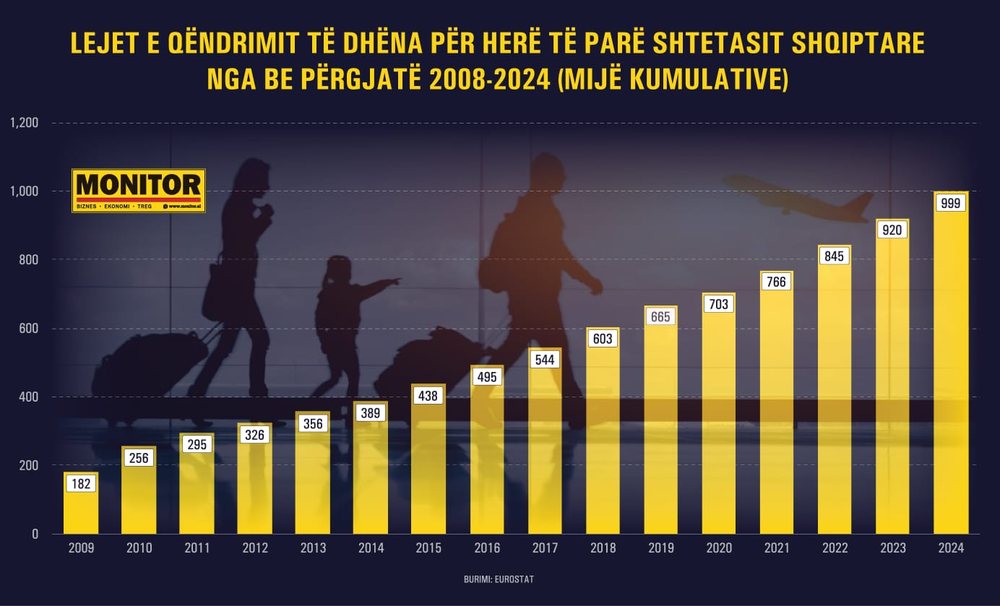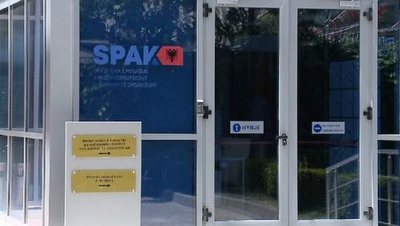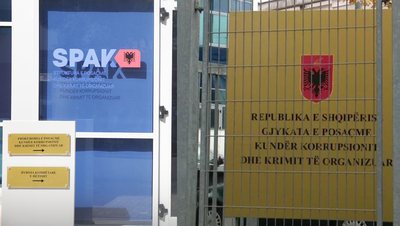
From 2008 to 2024, about 1 million Albanians received a residence permit for the first time in one of the European Union countries, according to Eurostat data.
Albanians with regular residence permits make up about 41% of the population still living here. But the total number of Albanians abroad is higher if you include immigrants living in Britain, the USA, Canada and other countries outside the EU.
Analyzing Eurostat data on first-time residence permits granted to Albanian citizens by European Union countries, we see a continuous increase in immigration that has been accelerating in recent years.
Data shows that in 2008, 97,780 thousand residence permits were registered for the first time, while by 2014 the stock of permits reached around 389 thousand. After 2015, the growth rate accelerated significantly. In 2018, the total exceeded 600 thousand, while in 2021 it had reached over 765 thousand permits.
The trend continued even stronger in the last three years, after the pandemic. From 2021 to 2024 alone, the number of residence permits granted to Albanians in the EU increased by over 230 thousand, bringing the cumulative total to almost 1 million (999,138) by the end of 2024. This pace indicates a continuous emigration pressure from Albania to European countries, despite internal economic and social developments.
The constant growth from year to year indicates a long-term and sustainable trend, where every year thousands of citizens have sought work and living opportunities in EU countries.
Employment and improving economic conditions are the main reasons that push Albanians to emigrate. The country's economic growth has not been distributed evenly during the transition. The lack of jobs with decent wages, high informality in the labor market, and the lack of long-term security for professionals have been the main drivers for emigration.
The average salary in Albania has remained well below the EU and Regional average, further driving demand for economic migration, especially towards Italy, Greece, Germany and then other Western European countries.
A large number of young people have chosen to study in EU countries, benefiting from European scholarships and programs. Most of them have then applied for residence and employment permits. The lack of professional prospects in Albania and the inability to find qualified jobs have strengthened this trend.
A large portion of the residence permits have also come as a result of family reunification. Albanians who settled earlier in EU countries have attracted their family members, increasing the number of new permits from year to year, especially in recent years.
The figure of 1 million Albanian residence permits in the EU ranks Albania at the top of the countries for high immigration in relation to population, also ranking us among the largest immigrant communities in the European space./Monitor






















